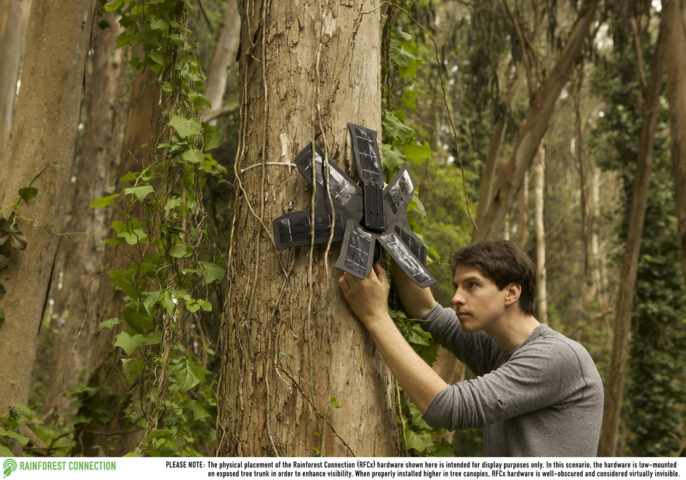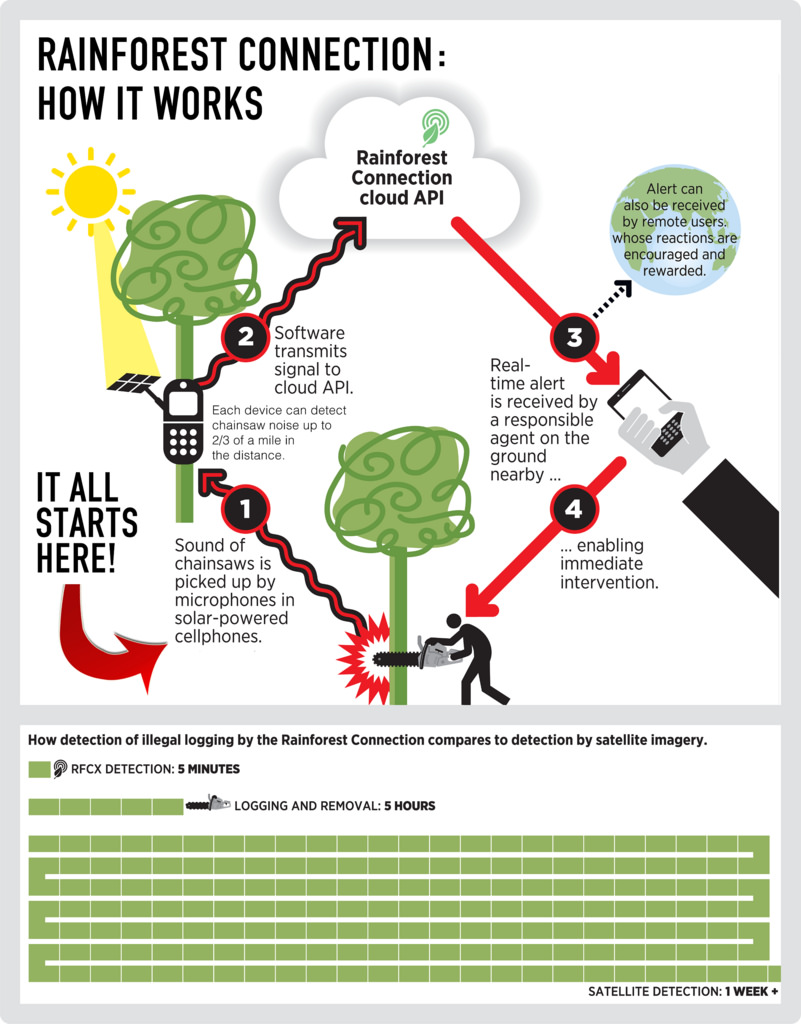By Neha Jain
In the summer of 2011 Topher White, founder of Rainforest Connection, a nongovernmental organization (NGO), visited the rain forests of Borneo as a tourist. He was shocked to learn that among the buzzing of insects, chirping of birds, and howling of gibbons, illegal loggers were sawing down a tree, just a few hundred meters away from a ranger station. The guards could not hear the noise of the chainsaw amid the cacophony of sounds.
Deforestation accounts for the second-highest emission of greenhouse gases—even higher than that caused by vehicles. Up to 90 percent of the logging taking place in rain forests worldwide is actually illegal. Illegal loggers prey on rain forests around the world to cash in on the multimillion dollar trade in paper, furniture, and other products. Most illegal loggers are never caught because the current method of detection through satellite surveillance takes days—by the time authorities learn about illegal logging incidents, the wood has already been taken away into the world market.


Recycled Smartphones vs. Illegal Logging
In the age of information and technology, White wondered, how could this take place? He realized not only that something had to be done, but also that what was needed to prevent illegal logging was already present in the forest he had visited. Guards were already stationed to protect against logging, and, surprisingly, there was cell phone connectivity.
Knowing that hundreds of millions of cell phones are discarded every year in the United States alone, White came up with a clever solution: Those phones could be used to listen for chainsaw noises and send alerts to authorities in real time to catch the loggers. White and his team engineered the cell phones to capture the sounds of chainsaws and to run on solar energy using recycled materials, then mounted them high up in the tree canopy where they are hidden from loggers.
When the cell phones detect chainsaw noise or other unusual sounds, they send messages in real time (using the standard GSM cellphone network) to the stationed guards, who can then catch loggers red-handed. The devices can detect noises up to a kilometer away.
White tested this device in Sumatra, Indonesia, in partnership with Kalaweit, a local organization working to protect gibbons. Within a day of installing the device, they caught some illegal loggers off guard. The good news is that the loggers did not return, so the device can serve as a deterrent. Now, White and his team are improving the device so that it can be used by many other organizations to protect rain forests in other parts of the world.
What can you do to help protect Earth’s rain forests?
You can donate money or your old smartphone to Rainforest Connection. Donating one old smartphone is equivalent to taking 3,000 cars off the road, in terms of reducing carbon dioxide emissions.


GotScience.org translates complex research findings into accessible insights on science, nature, and technology. Help keep GotScience free: Donate or visit our gift shop. For more science news subscribe to our weekly digest.

